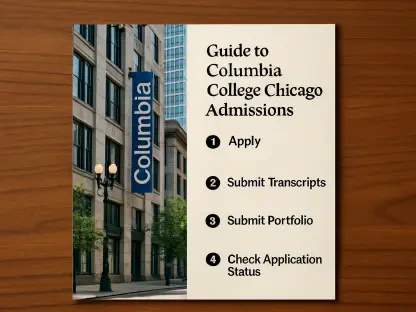In a transformative move for Dubai’s education sector, the Knowledge and Human Development Authority (KHDA) has introduced sweeping reforms that promise to redefine the standards for teaching professionals in private schools across the emirate. These updates come as part of a broader vision to ensure that students receive top-tier education from skilled and ethical educators, aligning with the ambitious Education 33 (E33) Strategy. With a focus on enhancing recruitment processes, enforcing accountability, and prioritizing student safety, the new guidelines are set to create a robust framework for educators. This initiative not only addresses current challenges in the private education system but also positions Dubai as a leader in educational excellence by fostering a supportive yet stringent environment for teachers and school leaders.
Elevating Professional Standards in Education
Strengthening Recruitment Processes
The cornerstone of KHDA’s recent updates lies in the meticulous overhaul of recruitment standards for teachers and school leaders in Dubai’s private schools. Detailed in the Technical Guide for Appointing Teaching Staff in Private Schools, these guidelines establish a uniform hiring process that applies immediately to new hires and transfers, while existing staff have until September 2028 (or April 2029 for schools with an April start) to comply with the updated qualifications. Mandatory academic credentials and conduct benchmarks are now non-negotiable, with specific requirements for teachers of Arabic and Islamic Studies to ensure cultural and linguistic accuracy. Furthermore, the shift from Appointment Letters to Appointment Notices formalizes roles with greater clarity, while new hires are required to complete induction training covering safeguarding, inclusion, UAE values, and ethics. This structured approach aims to build a foundation of competence and cultural alignment among educators from the outset.
Beyond the initial hiring phase, the guidelines introduce measures to enhance workforce stability and professional commitment. A notable rule imposes a 90-day waiting period on teachers who resign mid-term before they can join another school in Dubai, unless they fulfill their notice period at the term’s end. This policy seeks to discourage abrupt departures that disrupt student learning. Additionally, the inclusion of exit surveys for departing staff provides schools with valuable data on turnover trends and retention challenges. By setting clear expectations and gathering insights into why educators leave, KHDA demonstrates a proactive stance on creating a stable teaching environment. These recruitment reforms reflect a deep understanding of the need to attract and retain talent while maintaining high educational standards for the benefit of students and the broader school community.
Enforcing Ethical Conduct and Accountability
A parallel focus of the reforms is the stringent policy on professional conduct, ensuring that educators adhere to the highest ethical standards. The Staff Deregistration Technical Guide outlines severe consequences for serious breaches, such as criminal convictions, child protection violations, or repeated unprofessional behavior like inappropriate social media activity or cultural insensitivity. Educators found guilty of such misconduct face deregistration, effectively barring them from working in any KHDA-regulated institution, including schools, universities, and training centers. This measure underscores an unwavering commitment to student safety and the integrity of the education system, sending a clear message that unethical behavior will not be tolerated under any circumstances.
Complementing the punitive measures, the guidelines also emphasize the importance of fostering a culture of accountability and support. New educators must sign a Code of Conduct upon joining, aligning their professional responsibilities with the values and expectations of Dubai’s educational landscape. This formal agreement serves as a constant reminder of the ethical obligations tied to their roles. Meanwhile, the KHDA has ensured that these policies are not merely punitive by balancing them with opportunities for professional growth and development. The focus on safeguarding and ethical training during induction highlights a preventative approach, aiming to equip teachers with the tools to uphold standards rather than simply penalizing failures. Together, these efforts create a comprehensive system where accountability and empowerment go hand in hand.
Building a Supportive Educational Ecosystem
Empowering Educators Through Guidance
Central to the success of these reforms is the KHDA’s dedication to empowering educators through clear guidance and structured support mechanisms. As articulated by Dr. Amna Almaazmi, CEO of Growth and Human Development at KHDA, the new guidelines are a pivotal step toward creating a nurturing environment for school communities. By making the detailed technical guides accessible online, the authority ensures transparency and ease of understanding for school leaders and HR managers. Additionally, scheduled briefing sessions are designed to facilitate smooth implementation, addressing any uncertainties and providing a platform for dialogue. This proactive communication strategy reflects an intent to build trust and collaboration between regulatory bodies and educational institutions, ultimately benefiting both teachers and students.
Equally important is the emphasis on continuous professional development embedded within these reforms. The mandatory induction training for new hires is not a one-time requirement but a gateway to ongoing learning about critical areas such as inclusion and UAE cultural values. This focus ensures that educators remain adaptable to the evolving needs of their students and the broader educational goals of the emirate. Furthermore, the exit survey mechanism offers a unique opportunity to refine retention strategies by understanding the challenges teachers face. By addressing these issues systematically, KHDA aims to reduce turnover and foster a sense of belonging among educators. This supportive framework is a testament to the authority’s holistic vision of enhancing teaching quality through empowerment rather than mere regulation.
Reflecting on a Transformative Initiative
Looking back, the KHDA’s introduction of these comprehensive rules marked a significant turning point for Dubai’s private education landscape. The meticulous updates to hiring practices, the enforcement of ethical conduct through deregistration policies, and the emphasis on professional support through training and guidance were all steps that reshaped the teaching environment. These measures addressed critical gaps in qualifications, behavior standards, and workforce stability while placing student welfare at the forefront. As schools adapted to the new framework with the aid of accessible resources and briefing sessions, the foundation for a high-quality, principled education system was solidified. Moving forward, the focus should remain on monitoring the long-term impact of these reforms, ensuring consistent adoption across institutions, and refining policies based on feedback from educators and stakeholders. This initiative not only strengthened Dubai’s educational standards but also set a regional benchmark for balancing accountability with empowerment.









